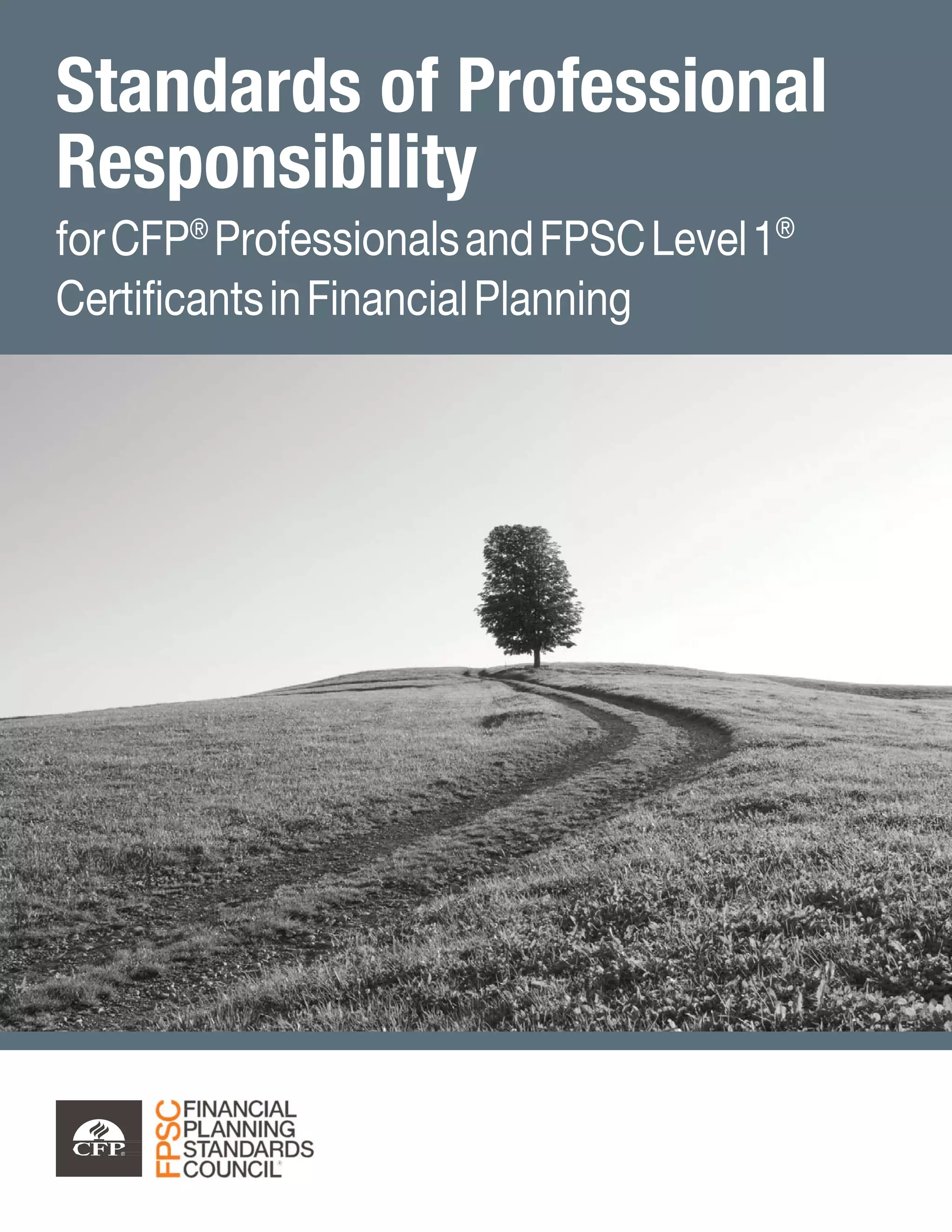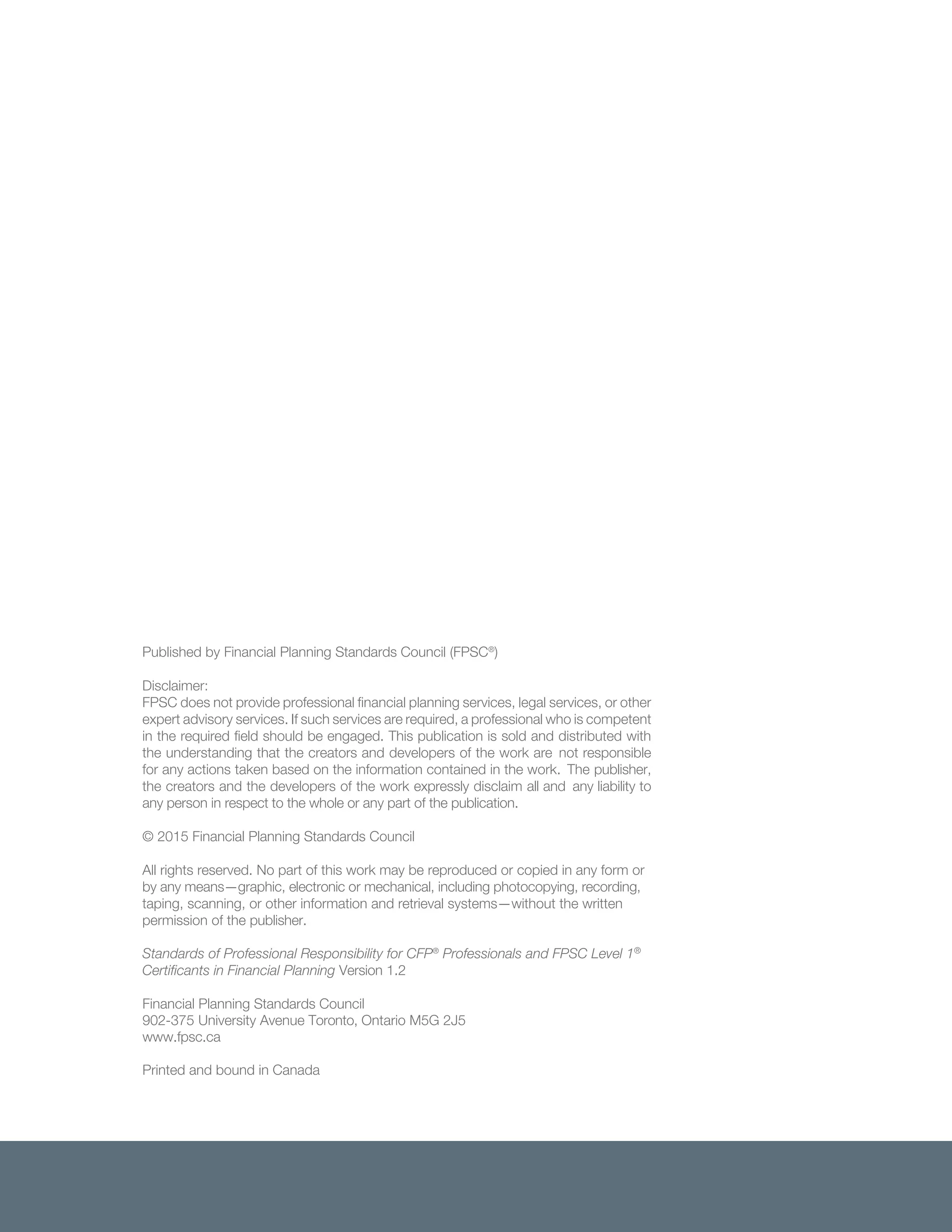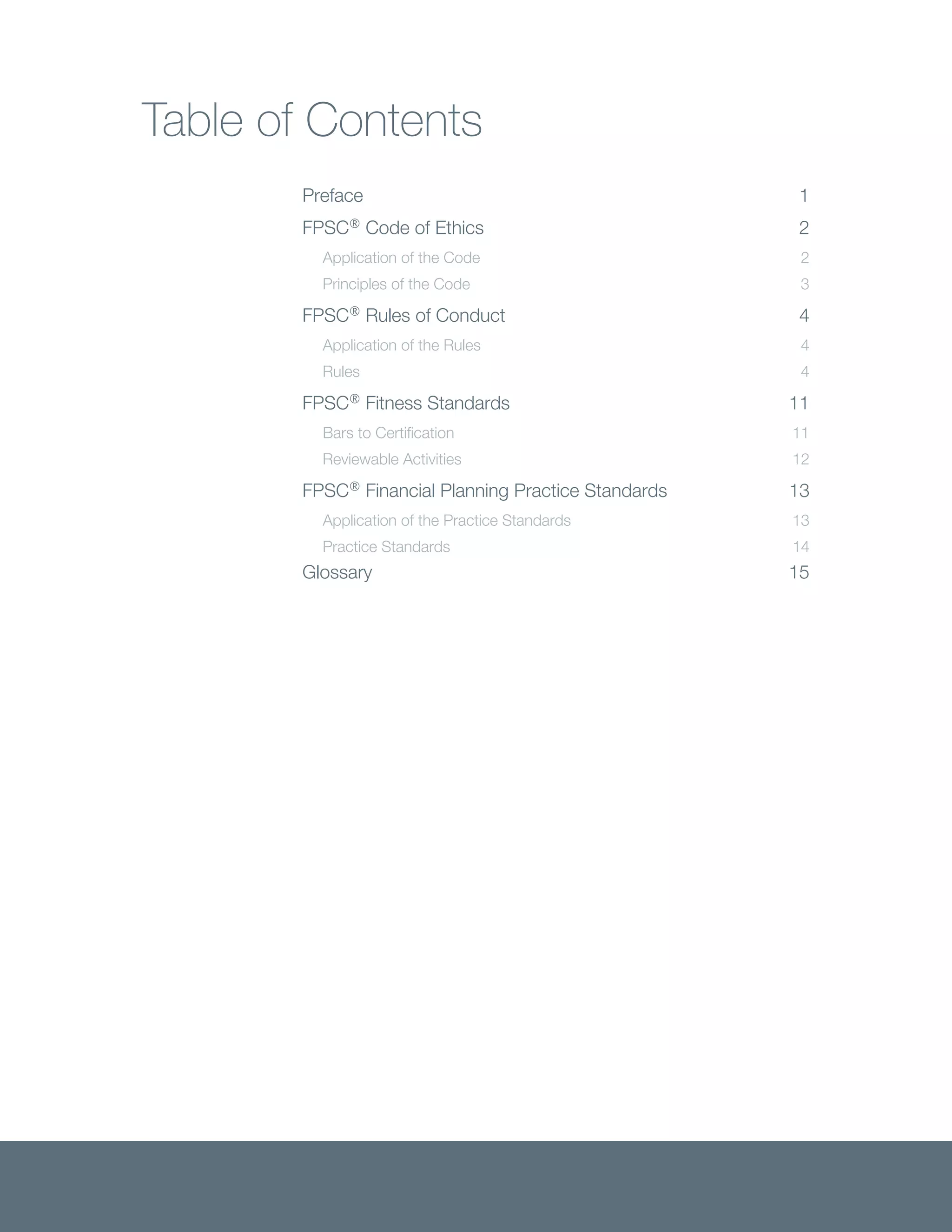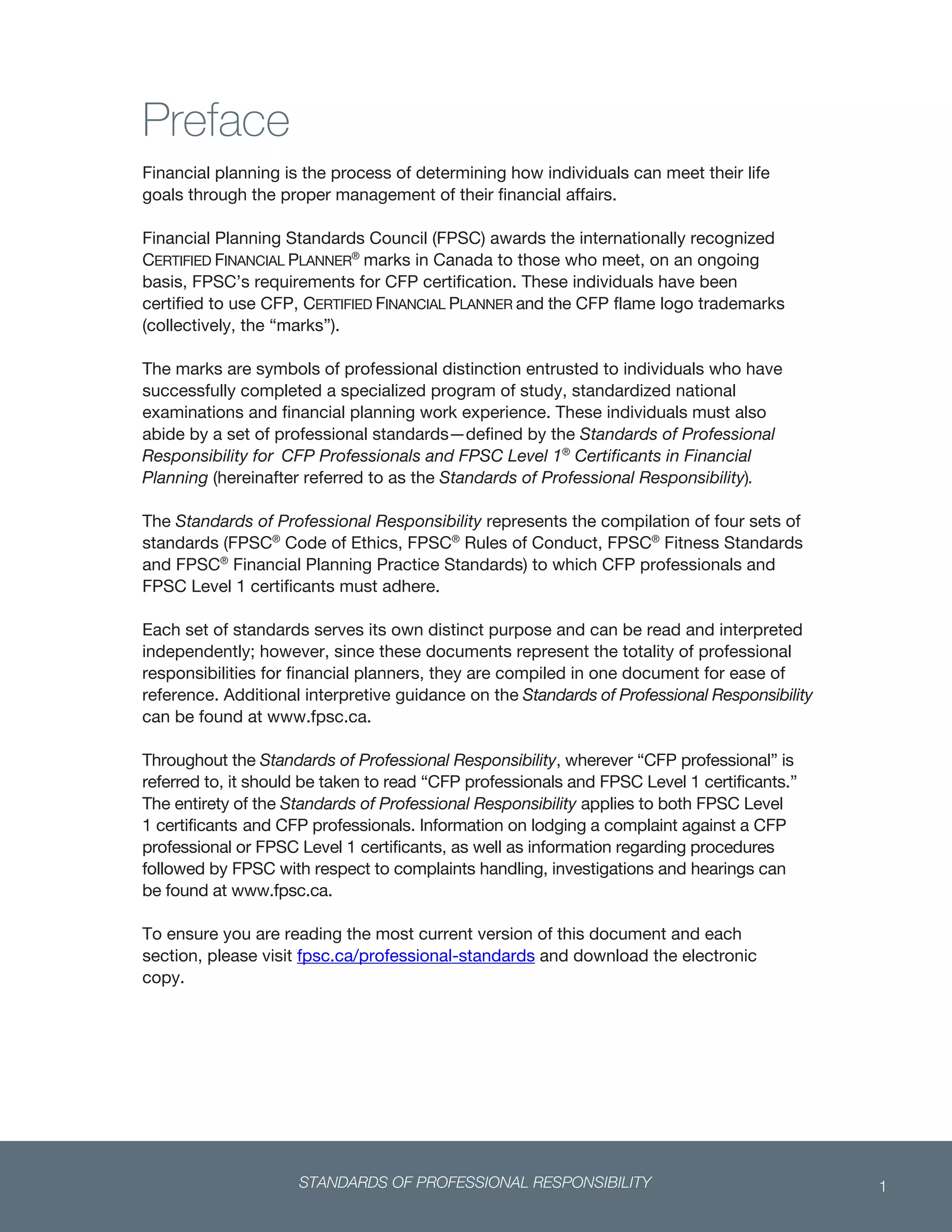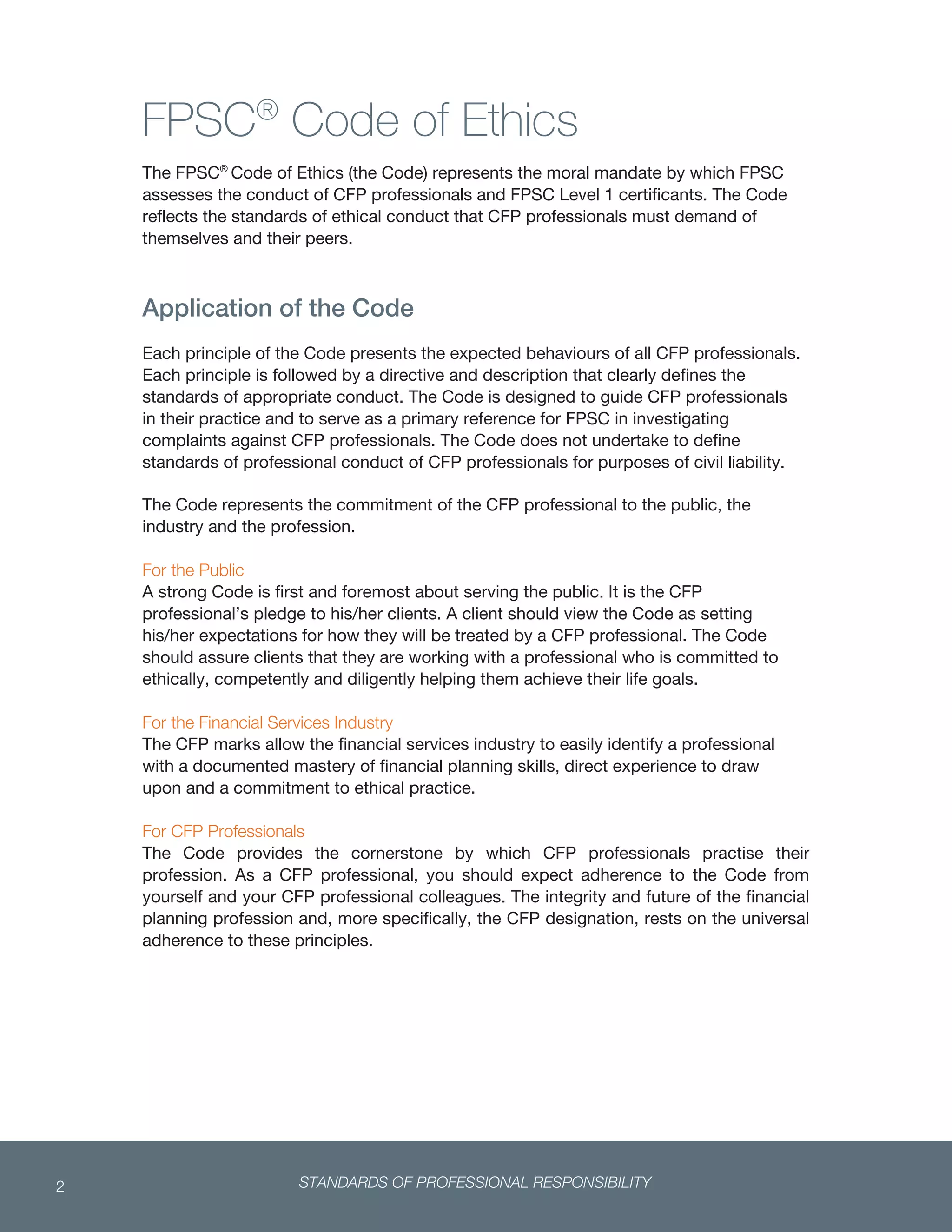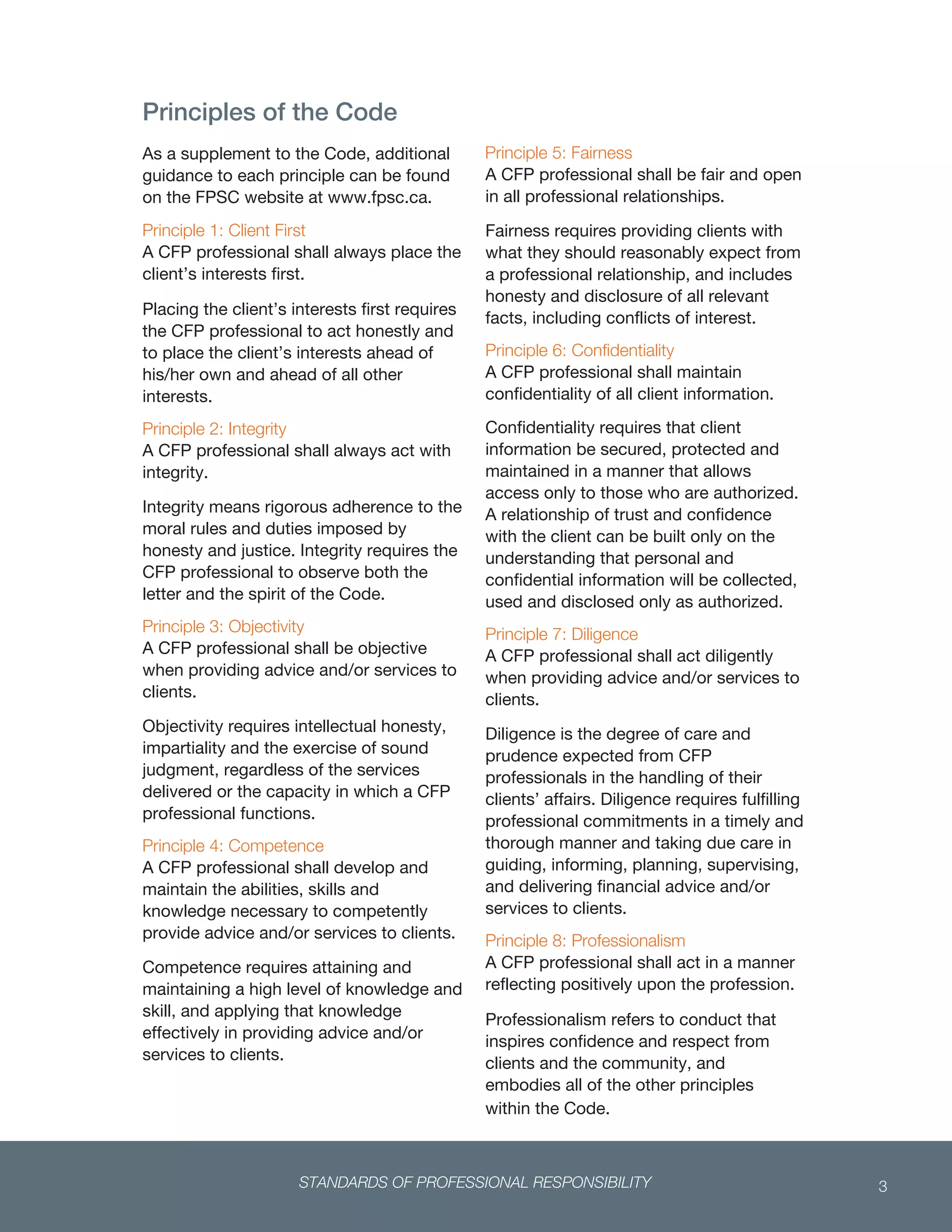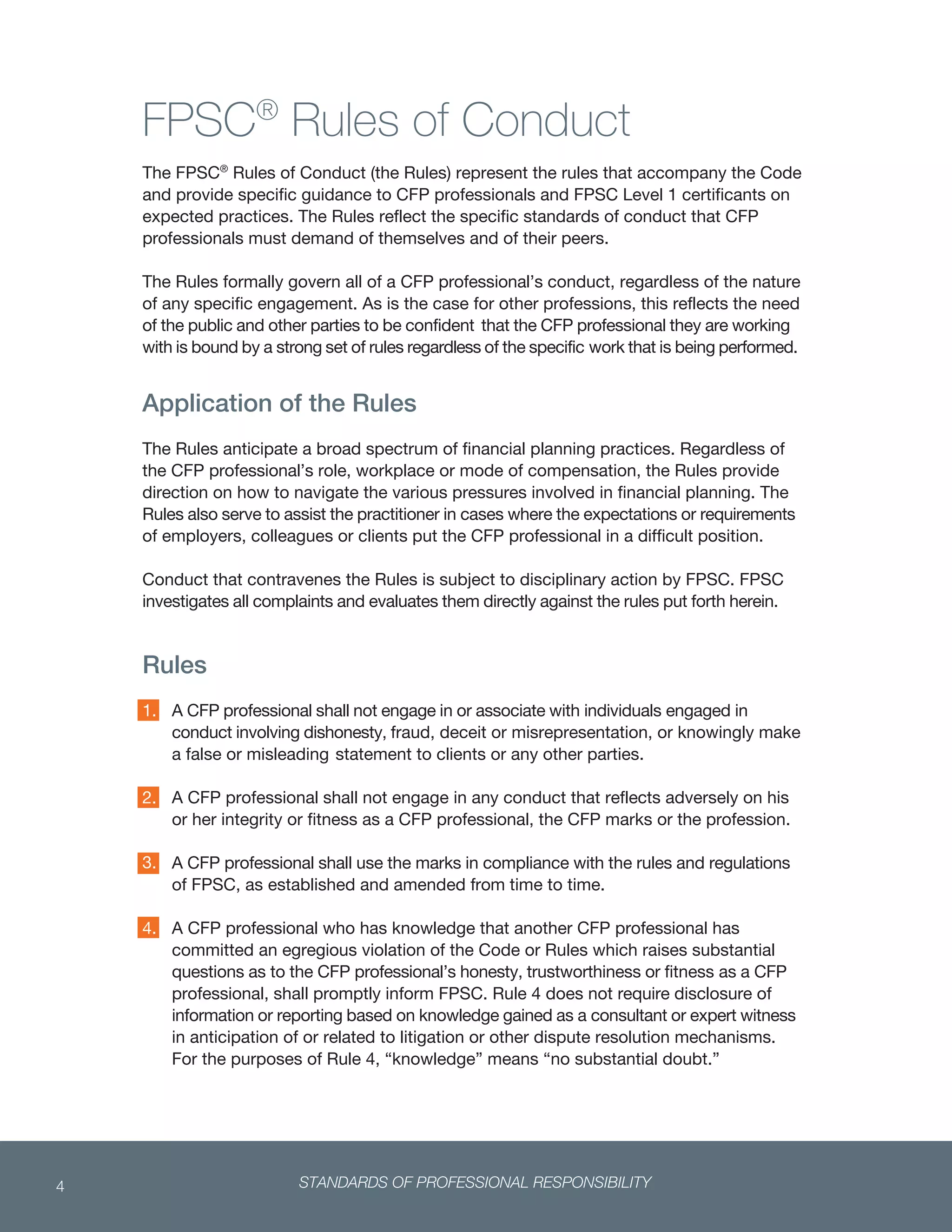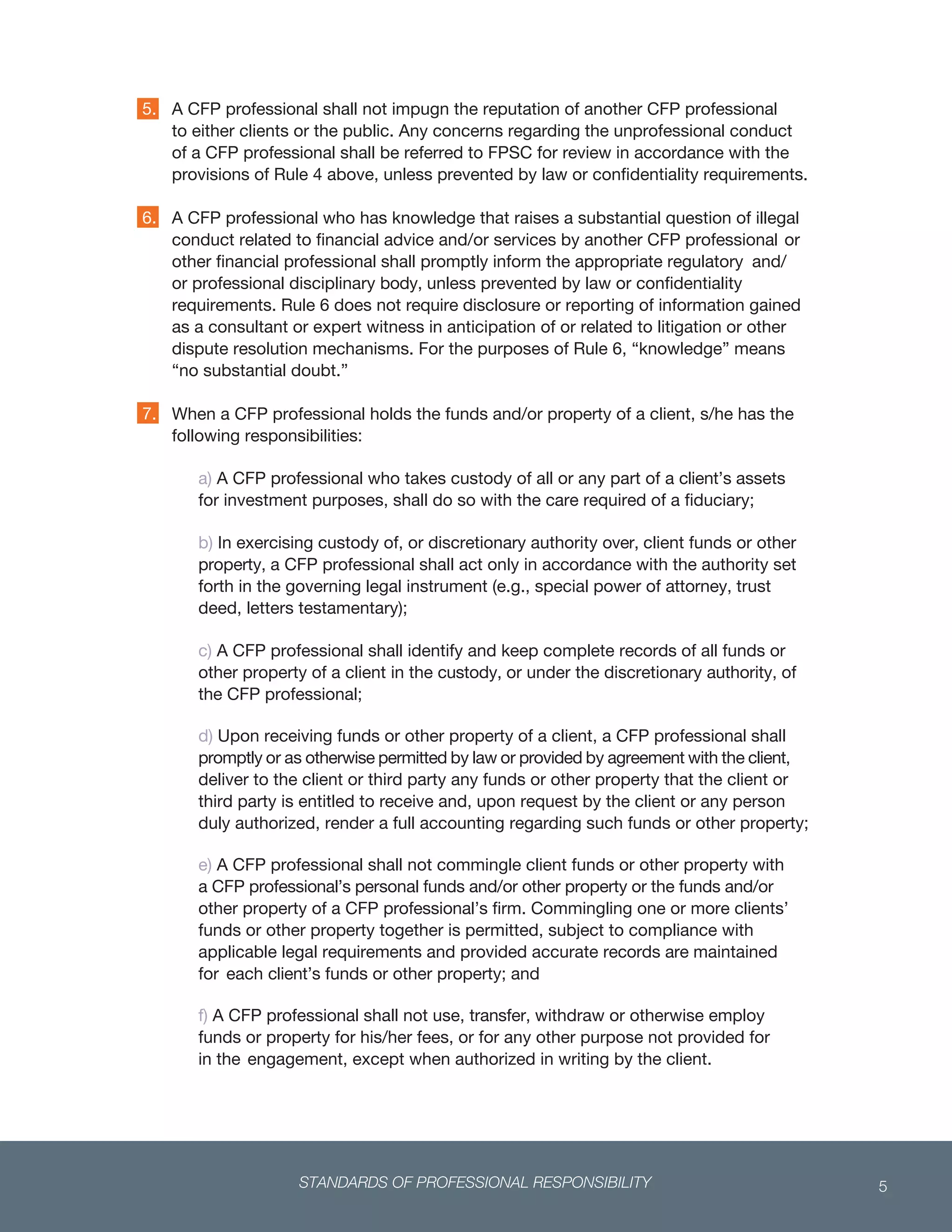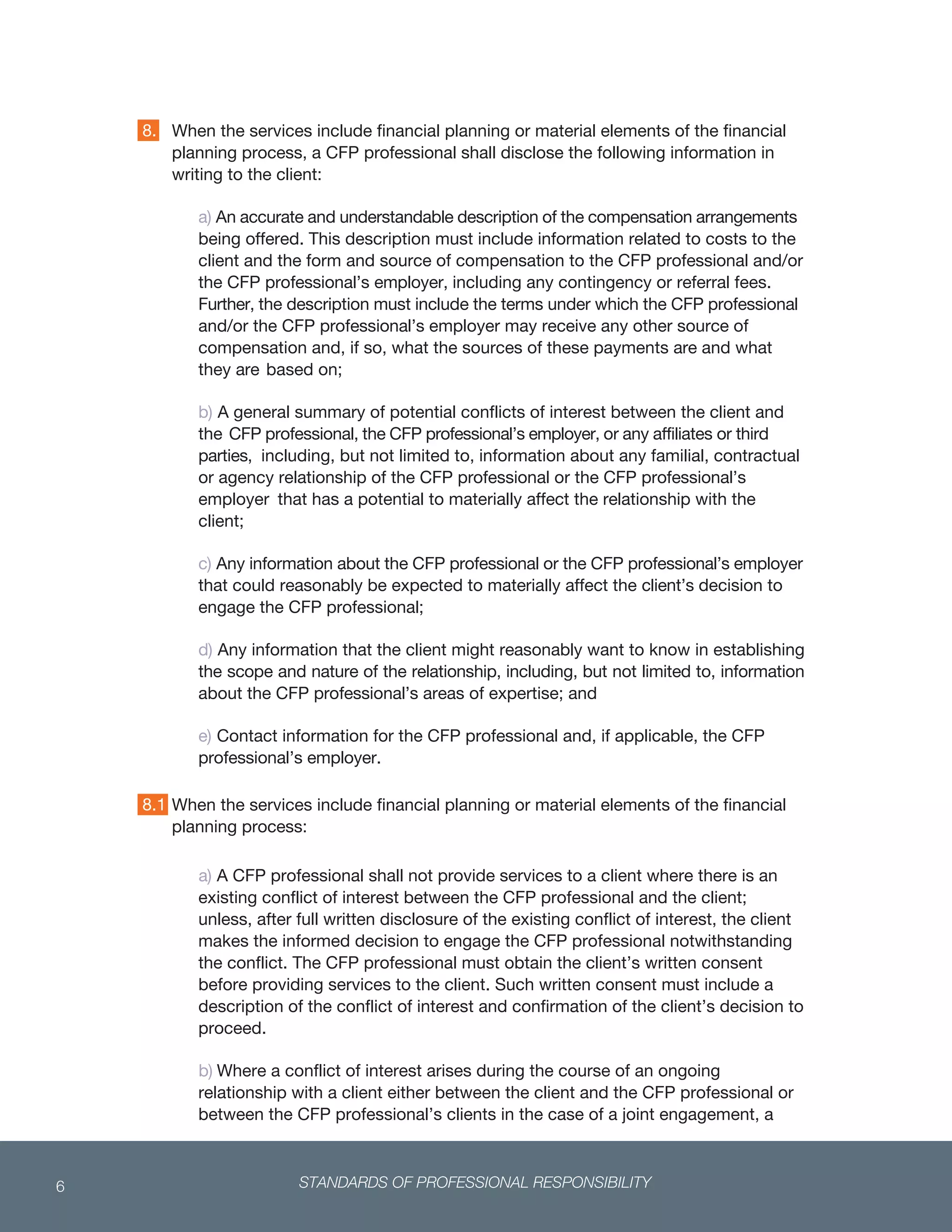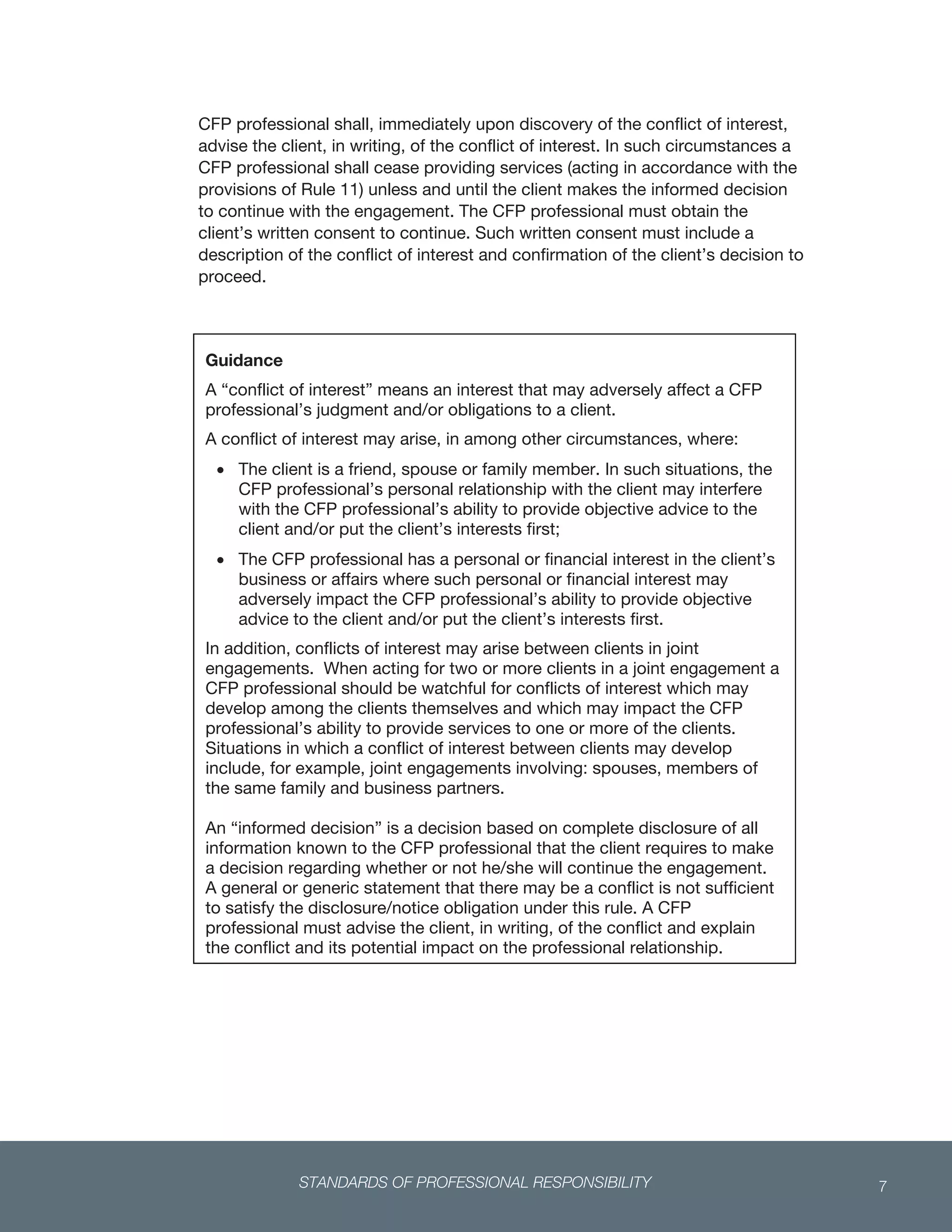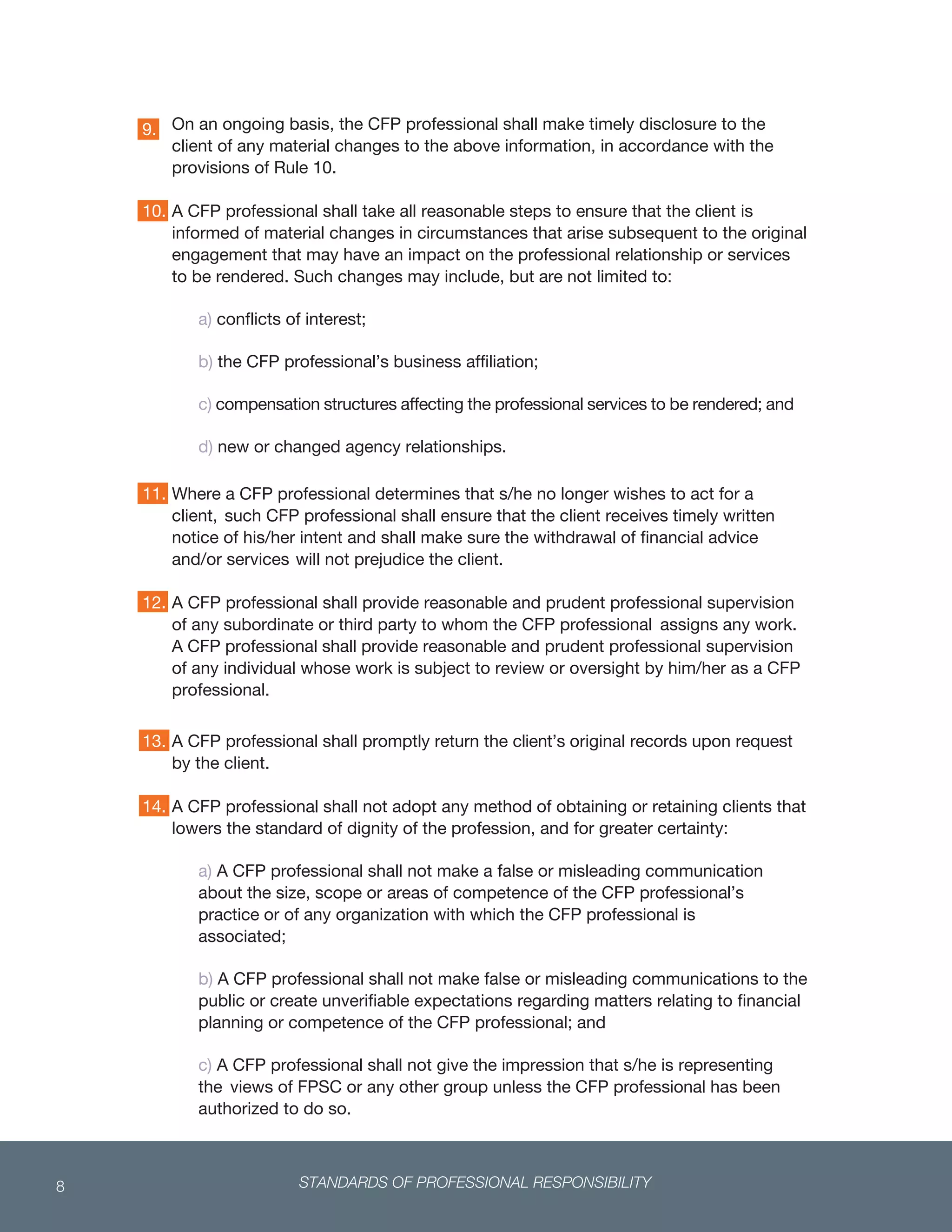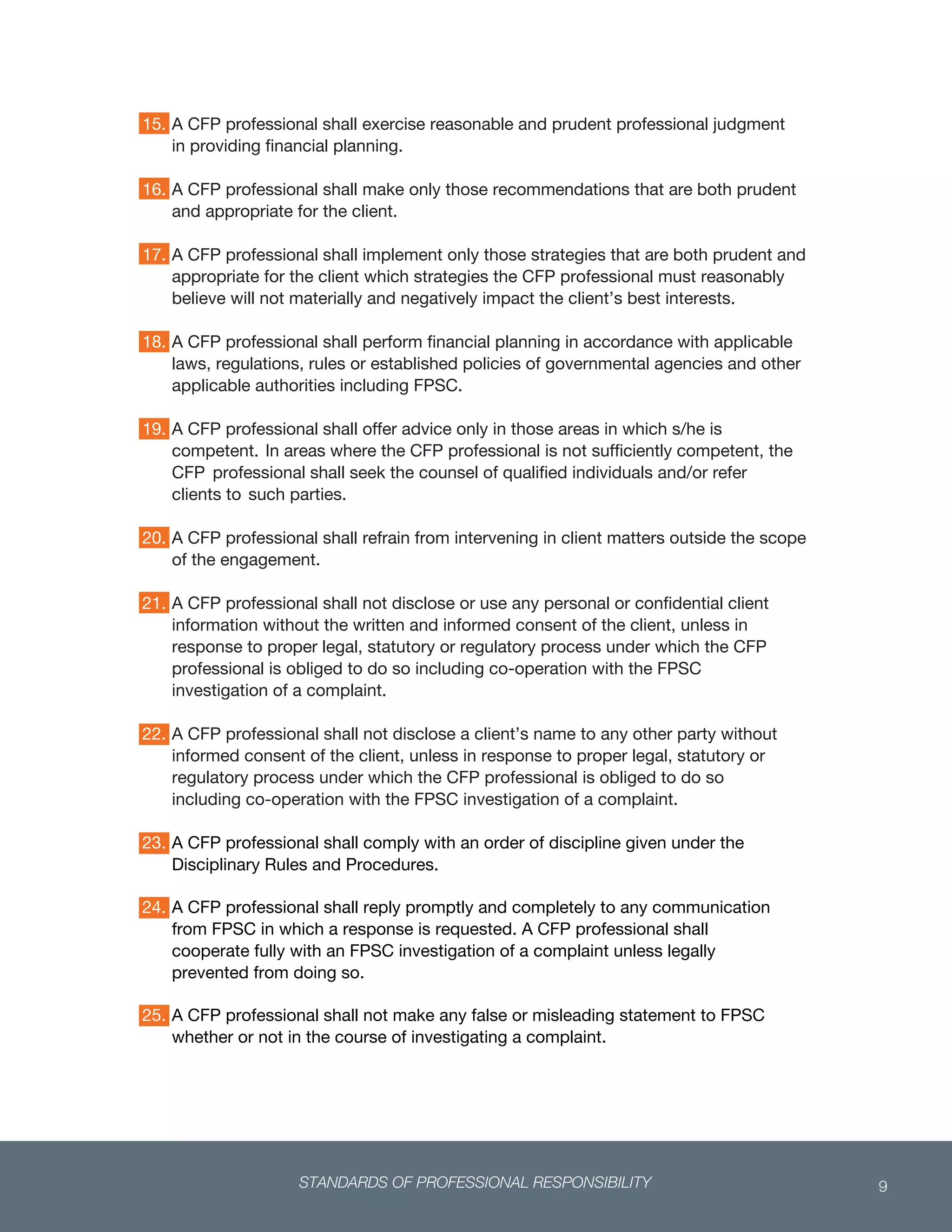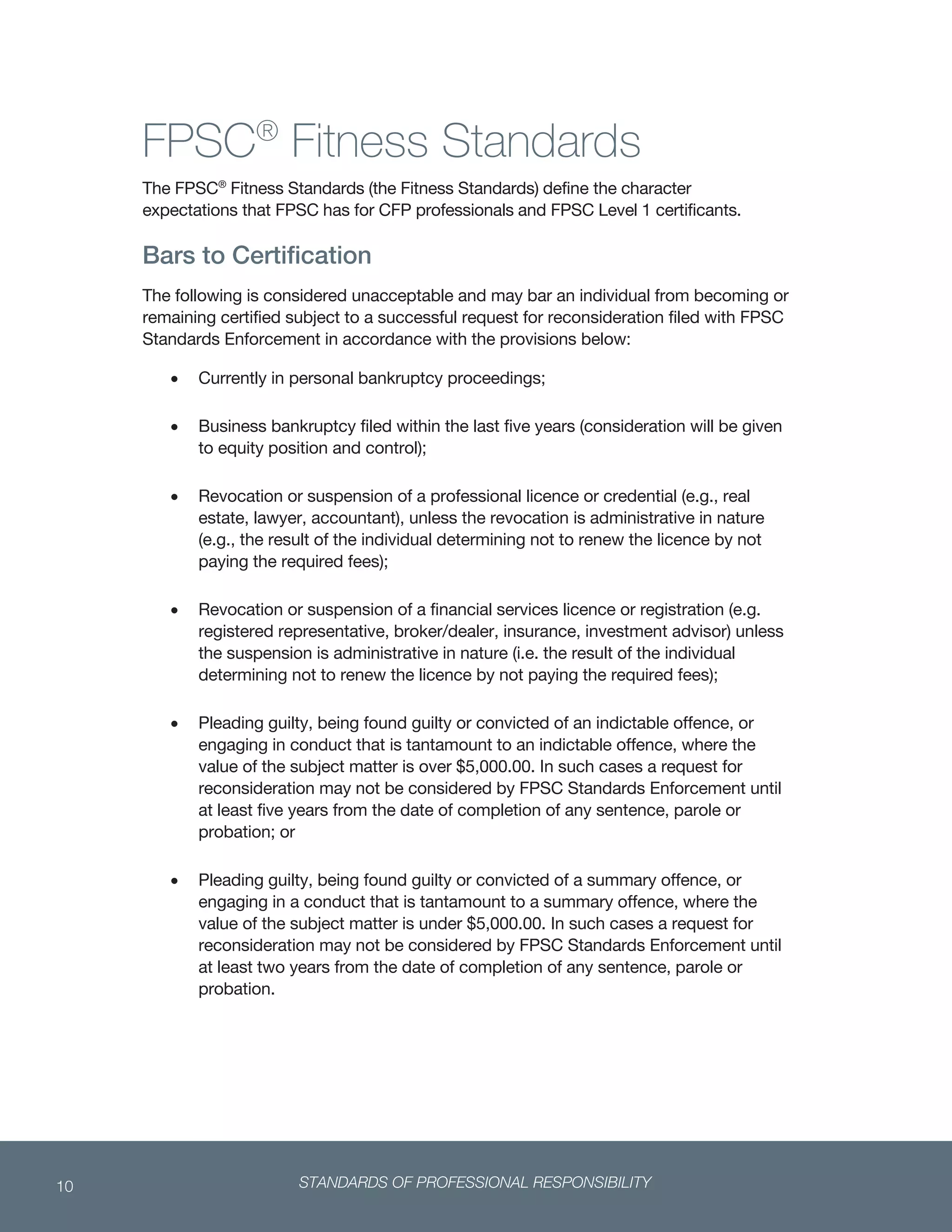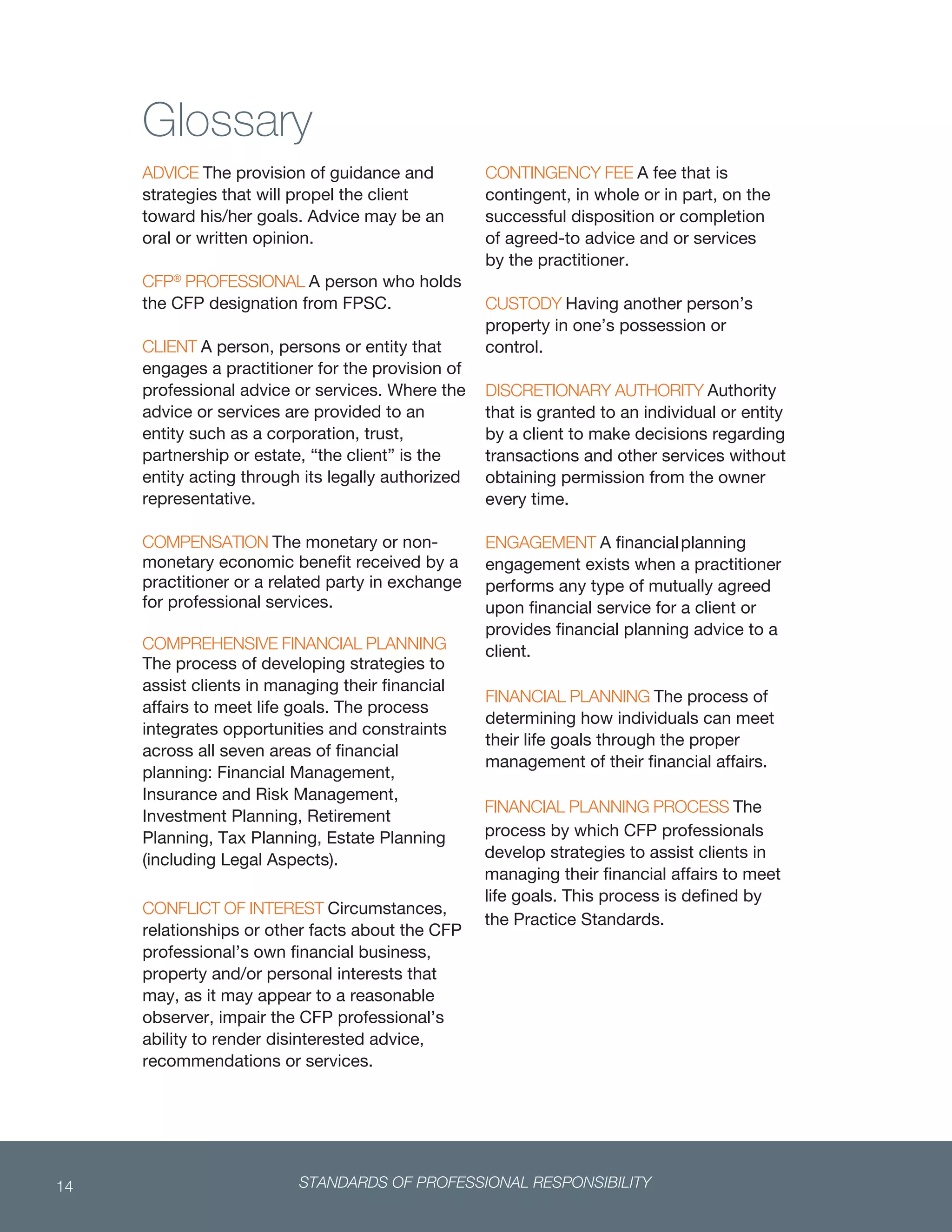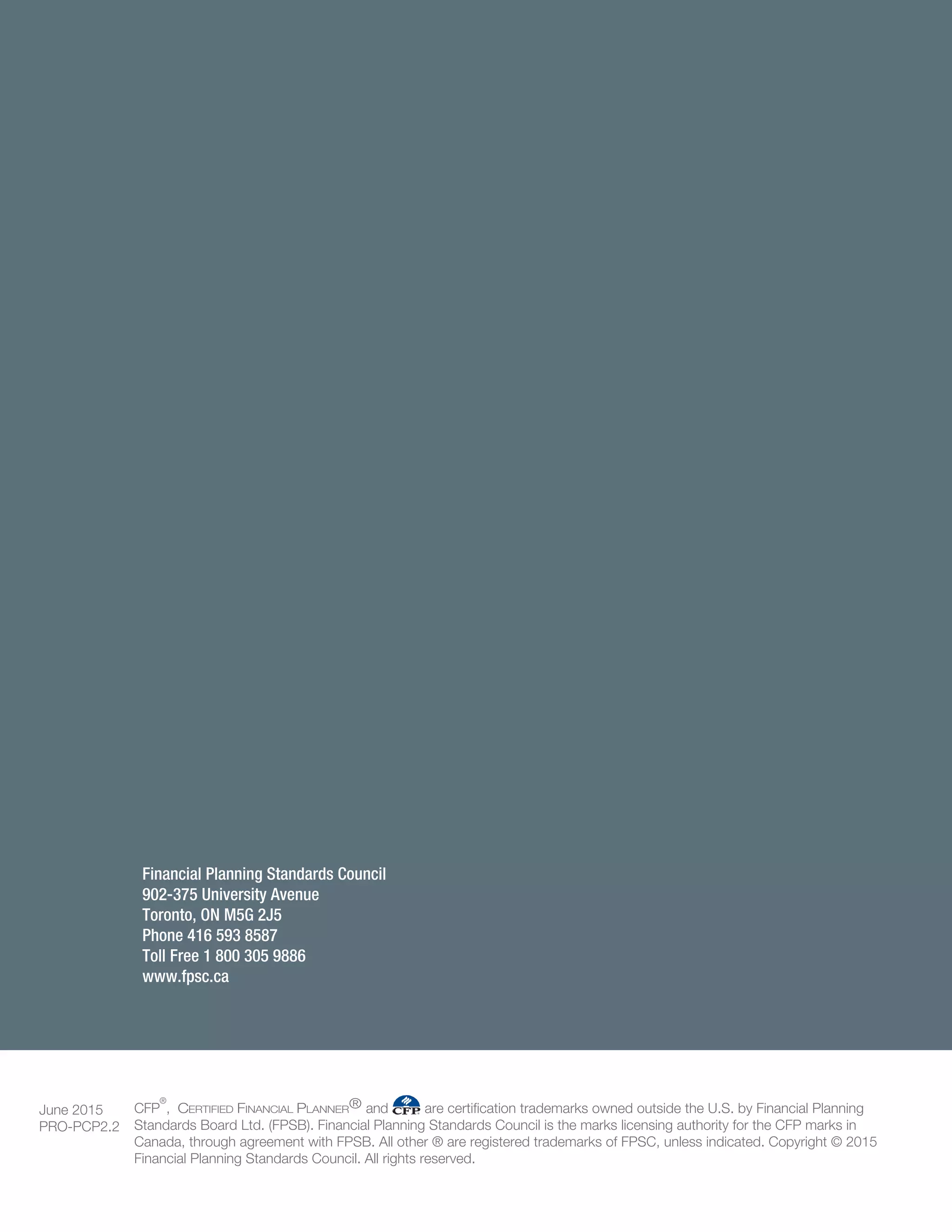This document outlines standards of professional responsibility for CFP professionals and FPSC Level 1 certificants, including a Code of Ethics, Rules of Conduct, Fitness Standards, and Financial Planning Practice Standards. It establishes principles like placing the client's interests first, acting with integrity, maintaining objectivity and competence, and keeping client information confidential. The Rules of Conduct provide more specific guidance, such as prohibiting dishonest conduct, requiring full disclosure of compensation and conflicts of interest to clients, and maintaining proper custody of client funds.
